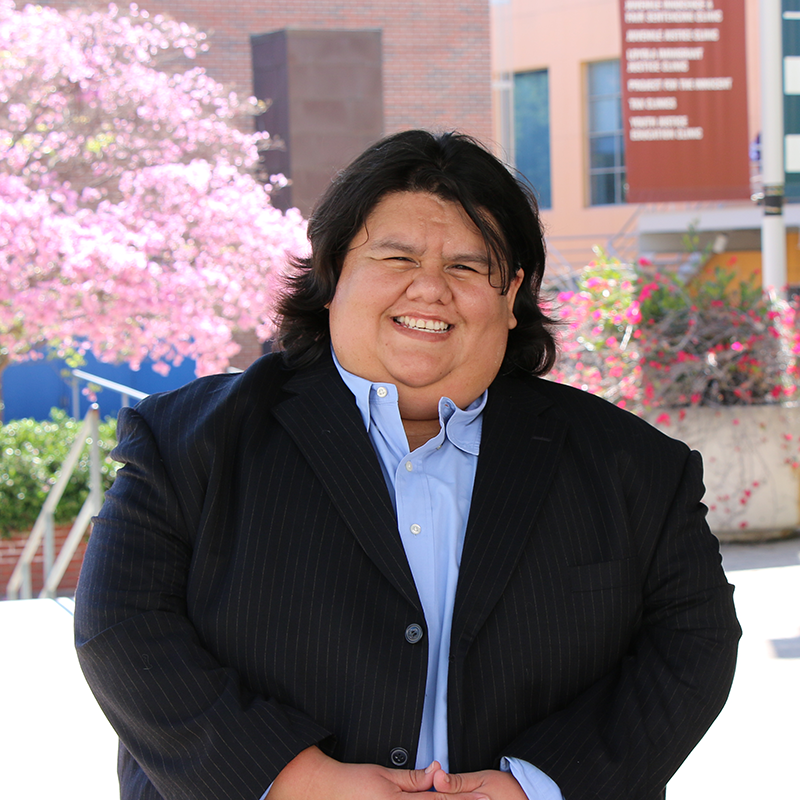Concern for Social Justice Drives LLS Adjunct Professor

Loyola Law School Adjunct Professor Diana Leon, director of the school’s Landlord Tenant Clinic, is no newcomer to issues like homelessness, gentrification and economic pressures on renters. She grew up in Watsonville, Calif. – known for its strawberry and mushroom crop – the daughter of Mexican immigrants whose English was unsteady.
“So I always served, as a kid, as their translators,” she says, “for finances, dealing with doctors, making appointments.” It didn’t take long for her to see how difficult life could be for agricultural workers who harvested the nation’s crops.
Attending union negotiations and workers’ marches as a kid, she developed a concern for social justice. “I realized something had to be done.” But she also felt she needed to support a family that had little financial security of its own.
Working as a corporate lawyer in Northern California, after law school, she got involved with a legal nonprofit and watched the housing market get distorted by wealth. “People making six figures in Silicon Valley couldn’t afford to buy houses,” which pushed middle-class and poor people even further away from where they worked. “I started noticing these huge disparities.”
Leon moved to Los Angeles to work for Neighborhood Legal Services of Los Angeles County (NLSLA), which offers legal support to low-income people typically steamrolled by the legal system. Leon works primarily with evicted tenants: In 2016, her office served more than 10,000 people. “A huge number,” she says, “but nowhere near the number of people who need assistance.”
She also teaches two courses on landlord-tenant law, both of which involve students coming to NLSLA; this is one of Loyola’s law clinics. “We teach them the law and client skills, as well as about getting ready for a trial, and about compassion fatigue.”
The clinic is typically a serious eye-opener for the students. “Not only are we able to teach the students about the law and procedures, but we can bust some of the myths: that people facing eviction are all alcoholics or drug addicts, have done something wrong.”
After students graduate, they often call their real-world experience a turning point in their education. “This was a partnership intended to teach the next generation of people who do this kind of work,” Leon says. It also helps give the attorneys of tomorrow – who might end up doing corporate, tax or others kind of law – the human dimensions of the problem. “At the end of the day, it’s not just black-letter law; human beings are involved.”